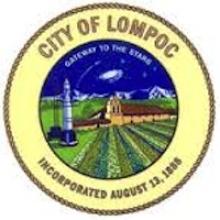MuniWireless Works in Lompoc…Just The Way They Like It
The early 2000s created a boom of both public and private wireless projects throughout the U.S., but many struggled with unrealistic expectations and flopped. Successful muni wireless networks transformed themselves, adapting to the changing needs of the communities. Some, such as Sandy, Oregon, have transitioned to Fiber-To-The-Home (FTTH) networks where the high-speed fiber-optic cable is hooked up directly to the home. Others repurposed their networks to provide other needed services -- like in Lompoc, California.
Lompoc transformed its $4 million muniwireless network, LompocNet, into a full-fledged Broadband Utility. Originally, the city council hatched the idea of a subscriber-based Wi-Fi network, but times changed quickly. Now, the Broadband Utility primarily provides much-needed internal connectivity for city services.
New Role: City Services
In this small city of about 42,000 people, the Broadband Utility operates a Wide Area Network (WAN) for municipal services. The electric and water utilities use the network for their smart-meters, which automatically provide usage information to the city utilities. Police video cameras transmit their feeds across the service, improving public safety. The Broadband Utility also provides the city’s phone and data services, and and has begun to connect some municipal buildings with fiber-optic cable. The Broadband Utility’s role has increased in importance; Lompoc’s franchise agreement with Comcast expired at the end of 2014, so now the Broadband Utility is beginning to function as an Institutional Network, connecting public buildings.
Lompoc’s approach to broadband may seem inverted to those used to the concept of incremental build-outs, but it worked for the city. In an incremental build-out, a small section of the network is built for a specific purpose and the revenues from that section pay for the next expansion. Lompoc decided to do the opposite: blanket the city completely and immediately with low-cost Internet access via Wi-Fi.
From Being a Flop to Being On Top



